During the “Autumn Poetry Night” celebrating the success of the conference, poet Thanh Thao, at the “rare” age of 78, had difficulty walking due to a broken leg and persistent illness, but still went up to read poetry. I had to help him step by step, from the end of the hall to the stage. That night, he read a poem praising the friendship with Vietnam by Senator John McCain (a former American pilot shot down at Truc Bach Lake, Hanoi in 1967), who later had great contributions in promoting the removal of the entire US embargo against Vietnam, and moving towards the normalization of bilateral relations, recently becoming a “Comprehensive Strategic Partnership for Peace ”.
Poet Nguyen Viet Chien helped poet Thanh Thao (right) read poetry at the "Autumn Poetry Night" in Hai Phong . |
I suddenly remembered Thanh Thao's poem about former pilots of the two countries after the war. In this poem, the poet tells the story of the heroic pilot Nguyen Van Bay, who shot down 7 American planes of various types. Thanh Thao emphasized the detail that after the war, the former pilots of the two sides who once faced life and death in the sky, now met each other and became close friends and Mr. Bay told them: " If I fly again, I might die/ or some more American pilots will no longer be in this world/ the war is so sad/ because we were born to be soul mates/ but had to pass through the gates of former enemies ". The story is simple, has a happy ending and is truly touching about human love after the war.
“BUT EVERYONE REGRETS OUR TWENTY YEARS OLD, WHAT ABOUT THE COUNTRY?”
In 1969, after graduating from the Faculty of Literature, Hanoi University, Thanh Thao went to work in the Southern battlefield during the anti-American war as a soldier and journalist. With 17 epic poems and dozens of poetry collections, memoirs, and literary essays published over the past half century, poet Thanh Thao was given the stage name by his literary friends as the "Epic King" of contemporary Vietnamese poetry. But there is one interesting thing, Thanh Thao is still a great poet of very unique, modern, and remarkable short poems. He has been awarded many valuable literary awards by the Vietnam Writers Association and the State Prize for Literature and Arts, Phase 1, 2001.
In the epic poem “Those Who Go to the Sea” , a famous verse by Thanh Thao about soldiers has been “memorized” by several generations of battlefields like a big question:
We went without regretting our lives.
(How can one not regret the twenties?
But if everyone regrets their twenties, what will happen to the Fatherland?
The grass is sharp and warm, isn't it honey?
Furthermore, in the poem "Footprints across the grassland" written on the way to the B2 battlefield - Southeast, Thanh Thao had some very warm and touching verses:
Carrying many human aspirations
Small footprints without words or names
Time passes like grass/ The path is like a strong thread pulled through.
Who goes near, who goes far
What is left are only footprints.
Buried in the grasslands of time
Still silently spreading out of our sight
Still warm and passionate.
Let the next generation know the way to the battlefield...
I read the epic poem Metro (Epic Poem Collection 9) by Thanh Thao, and saw that he had made a journey back to his youth during the fierce war years in Truong Son with a deeper and more contemplative view of human and country fate: “I passed that road only once/ I can love many times but only once/ I once bothered others to carry me up and down the mountain pass/ I had malaria many times but only once/ I remember my 63rd birthday once/ and that road only once/ What did I get? Nothing/ Millions of people passed this road too/ There are losses and gains/ There are many things that are lost more than gains/ Is there any absolute silence like the graves in the middle of Truong Son/ fifty years, one hundred years and more/ Eighteen-year-old soldiers/ lying in the middle of million-year-old forests/ forests that have disappeared/ no search can reach them” .
Thanh Thao opened her epic poem with such quiet, poignant, and painful verses. Right at the first station of the Metro , the image of soldiers on the “battle train” who had forever remained under the vast Truong Son mountain range reminded us of those painful years. The young soldiers went to war, to death with the most innocent and pure portrait of their generation:
“no one has the power to answer/ even though I still have my whole life ahead/ at the age of 26 I “tried to ask about happiness”/ with the purest innocence/ but what happiness is I don’t know/ is the shadow of silence/ is the shadow of the purple-flowered lagerstroemia tree or the bodhi tree/ suddenly woke up in the middle of the old forest/ a sound of something falling/ happiness”.
The question of happiness in those years will forever remain with the youth of those who silently sacrificed their blood and bones in the war of liberation: “But what is happiness? This question was asked by Ms. Duong Thi Xuan Quy/ the questioner could not answer herself/ because the bell had rung/ the time was up” . An unanswered question that continues to cut into the hearts of those still alive today.
Just as passionate and heartbreaking, the images of the girls in Truong Son during those years are always restless and restless under the underground currents in the Metro journey through each station: "the girls of those days often had short legs/ maybe they climbed too many hills/ carried backpacks for too long/ carried too much rice on their backs/ if I say the girls of those days are more beautiful than the 8x 9x girls with long legs/ many people will not believe me/ there are many truths/ many ways of looking/ Truong Son is only one" . And at a later station, the young female volunteers who left their most beautiful youth on the battlefield now return to the pain of everyday life that is not easy to share: “Which station have we passed? The young female volunteer wrote a hastily written letter: Tomorrow I will leave, I wish you good luck/ maybe you are luckier than me/ the girls who later shave their heads/ the girls who ring the bells and gongs, the incense smoke in the epic poem of Pham Tien Duat/ they go from the forest gate to the Buddha gate/ asking for a little peace/ to end their relationship/ to forget love, to forget husband and children/ the purple-flowered tree or the bodhi tree/ which tree is not a tree of happiness/ or am I luckier than you”.
THANH THAO AND PHAM TIEN DUT - TWO REPRESENTATIVE POETS OF A BATTLE PERIOD
In the above long poem, Thanh Thao mentioned Pham Tien Duat, a typical poet of the generation of soldiers during the war. In the years 1968 - 1970, Pham Tien Duat's poetry opened a new, very modern and very vivid view of the resistance war against the US to save the country with poems such as: Truong Son Dong Truong Son Tay, Fire of lights, Glassless vehicle squad, Sending you the volunteer girl, Remembering, Sound of bombs in Seng Phan... His poetry during those years was present in the spiritual luggage of soldiers going to war to encourage, share and cheer their fighting spirit, his poems were set to music and sung all over the war roads. Pham Tien Duat's poetry (especially poetry about war) has a unique and different tone, cannot be confused with the poetry of others and he has the merit of opening a school of war poetry that bears the mark of hardship, dirt and innocence of soldiers on the battlefield at that time. Pham Tien Duat's contribution to the resistance poetry has been recognized both in terms of poetic innovation and content innovation reflecting the heroic years when the whole nation went to war. For me, I want to use the image of "The Eagle" of Truong Son poetry to talk about poet Pham Tien Duat, his poems written on the Ho Chi Minh trail between the B52 carpet bombings, soared up to the sky of patriotic poetry, touching the hearts of millions of young people going to war and his poems are like proud eagles predicting the approaching day of total victory.
Returning to Thanh Thao’s epic poems, in my opinion, Thanh Thao’s silent journey in the epic poem Metro is a journey of pain through each station, through each fierce stage of the war more than thirty years ago. The frames, the moments, the portraits of those years run on the poet’s “tracks” of reminiscence like a train full of worries to find answers and explanations as in the following verse:
No one wants to live forever in the forest/ but my friend was once forgotten/ in a corner of the forest/ on a day when everyone was rushing to Saigon to eat and drink/ my friend alone sipped some moonlight through the leaves/ he kept the warehouse when everyone forgot/ after 34 years/ I opened the warehouse he kept alone/ the machine gun ammunition boxes filled with memories/ the wooden boxes of military supplies and dry food/ not filled with 701, 702 cakes/ but with all kinds of round, clear grains/ on the roads that are now highways/ that day my sister carried on her back heavy with burden/ wooden boxes filled with all kinds of round, clear grains/ of mothers, wives, lovers, all/ tears.
Photo: Internet |
On the path of searching for something new, poet Thanh Thao is never an outsider. While he is struggling to experiment, many people just want him to return to the values that made his name during the war. But Thanh Thao refuses to rest on the achievements of old values. With his poetic talent and his effort to not be helpless, over the past few decades, Thanh Thao has broken himself in the emotional life of a soldier who has been soaked in the pain of battle and the true poetic life that he had not had time to explore before. I think that in Thanh Thao's poetic personality, a great creative force always urges him, always plows him, always exhausts him on new shores.
In that memorable "Autumn Poetry Night" in Hai Phong, when I led Thanh Thao up to read poetry, I wrote him the following poem: "When I led you up to read poetry/ you were like a wounded, tired wind/ slowly drunk, slowly flying/ in the cloud of poetic words/ on my shoulder was the wind from half a century ago/ that blew through the forest burned down by napalm bombs/ those who died young/ they accompanied the wind to the top of the sky and then turned into clouds/ in the autumn poetry night in Hai Phong/ when Thanh Thao went up to read poetry/ I suddenly saw the clouds of the past/ slowly accompanying you/ the wounded wind that was awake all its life/ in the sleepless forest of poetry" . And I think, poet Thanh Thao, in his poetic journey over the past half century, has always been steadfast, always concerned with the people, with the country like that.
Source: https://baothainguyen.vn/van-nghe-thai-nguyen/202507/nha-tho-thanh-thao-thi-ca-cua-nguoi-linh-vuot-qua-chien-tranh-va-mat-mat-e4927e2/


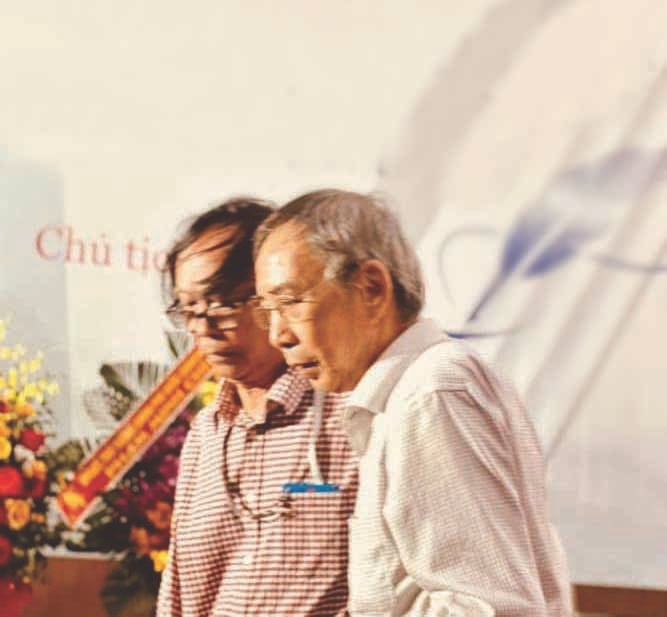
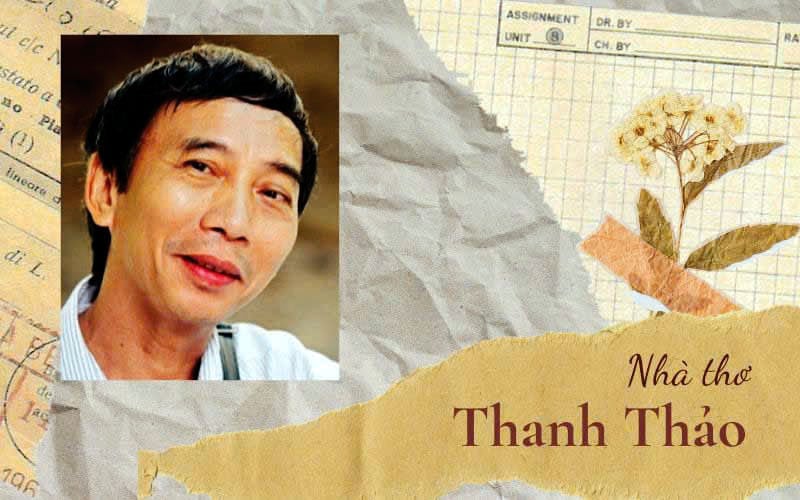
![[Photo] Highways passing through Dong Nai](https://vphoto.vietnam.vn/thumb/1200x675/vietnam/resource/IMAGE/2025/11/12/1762940149627_ndo_br_1-resize-5756-jpg.webp)









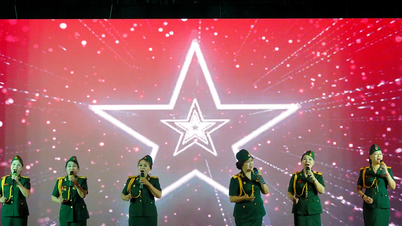

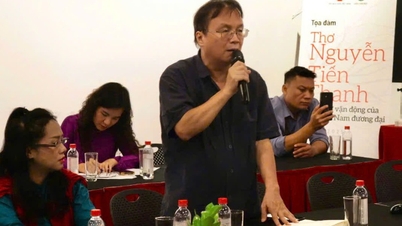

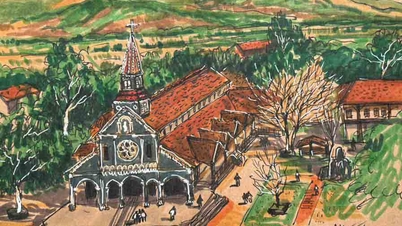

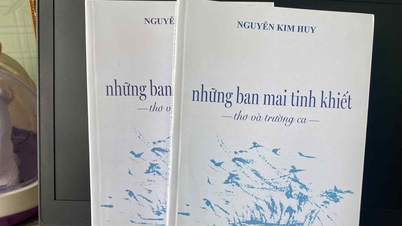
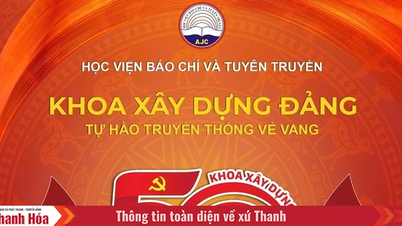

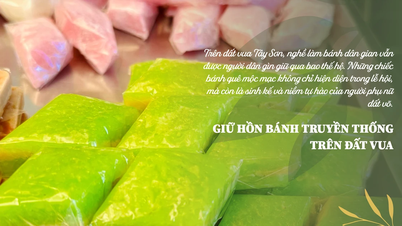

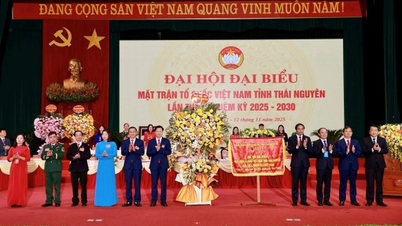

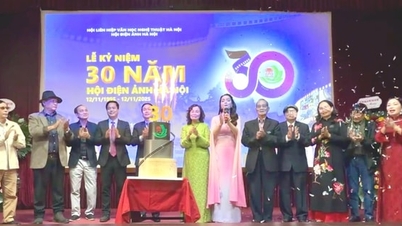


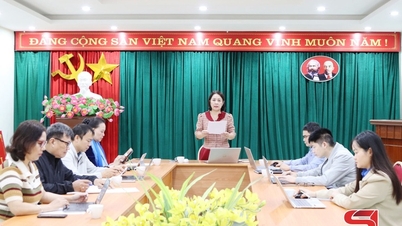






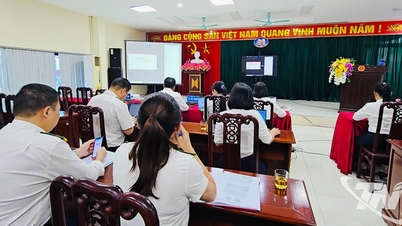
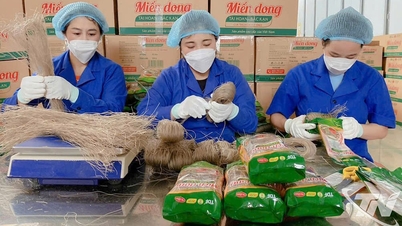








































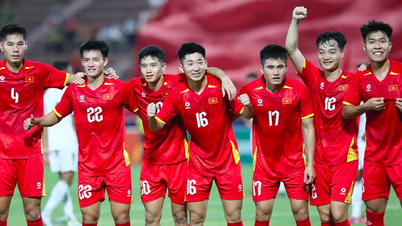
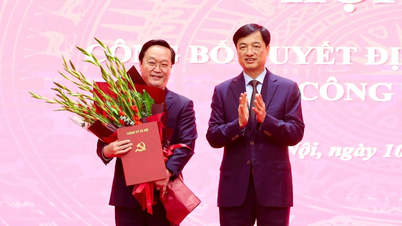




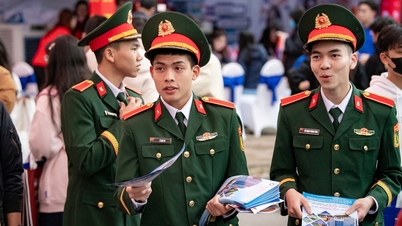
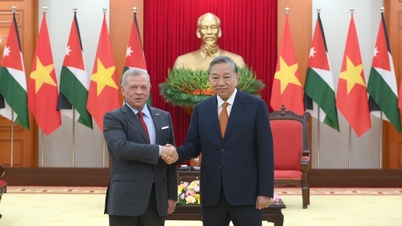
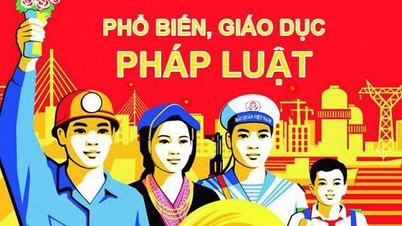

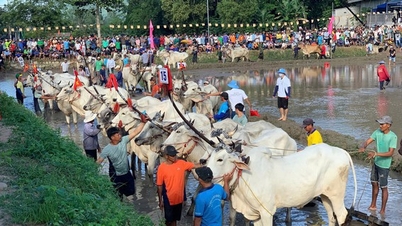

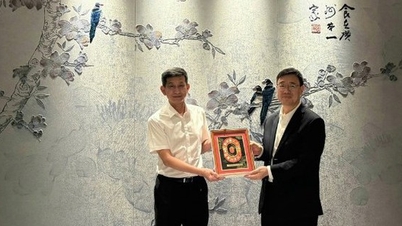




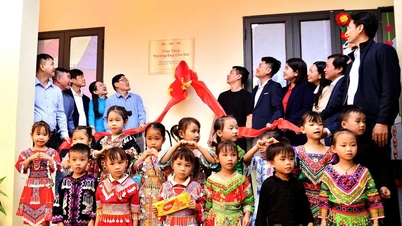

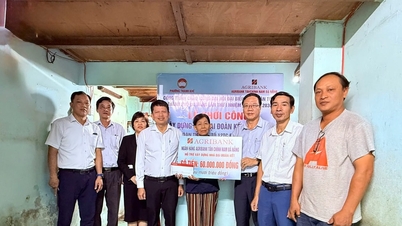
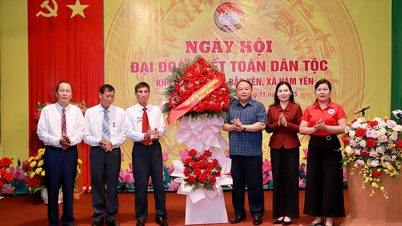
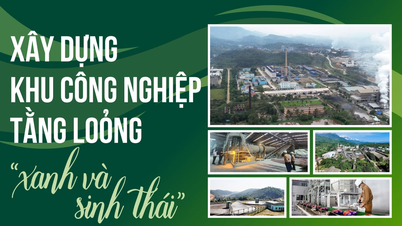

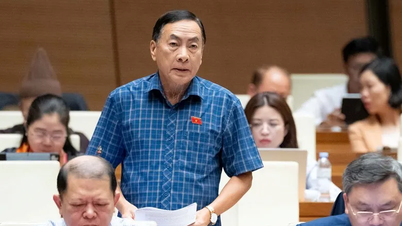





![Dong Nai OCOP transition: [Article 3] Linking tourism with OCOP product consumption](https://vphoto.vietnam.vn/thumb/402x226/vietnam/resource/IMAGE/2025/11/10/1762739199309_1324-2740-7_n-162543_981.jpeg)






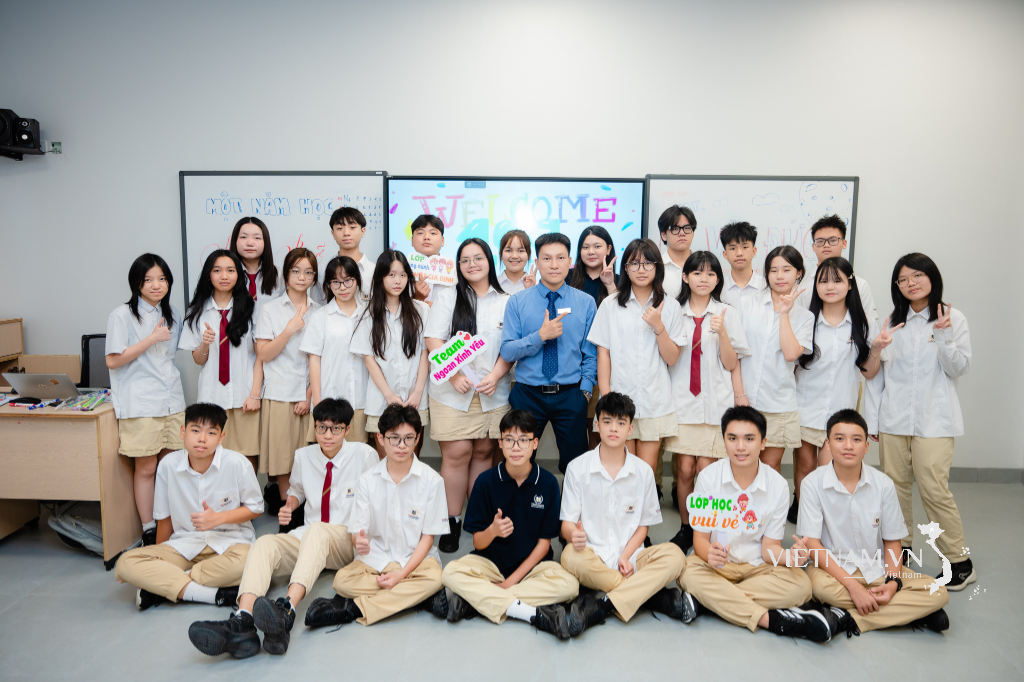

Comment (0)